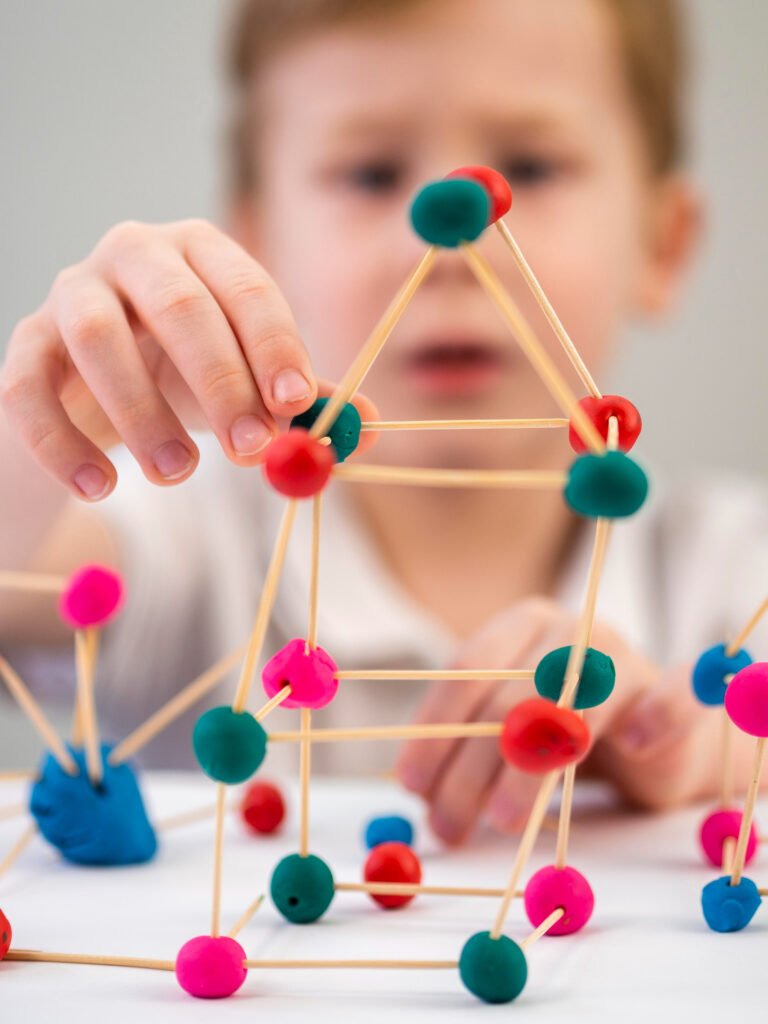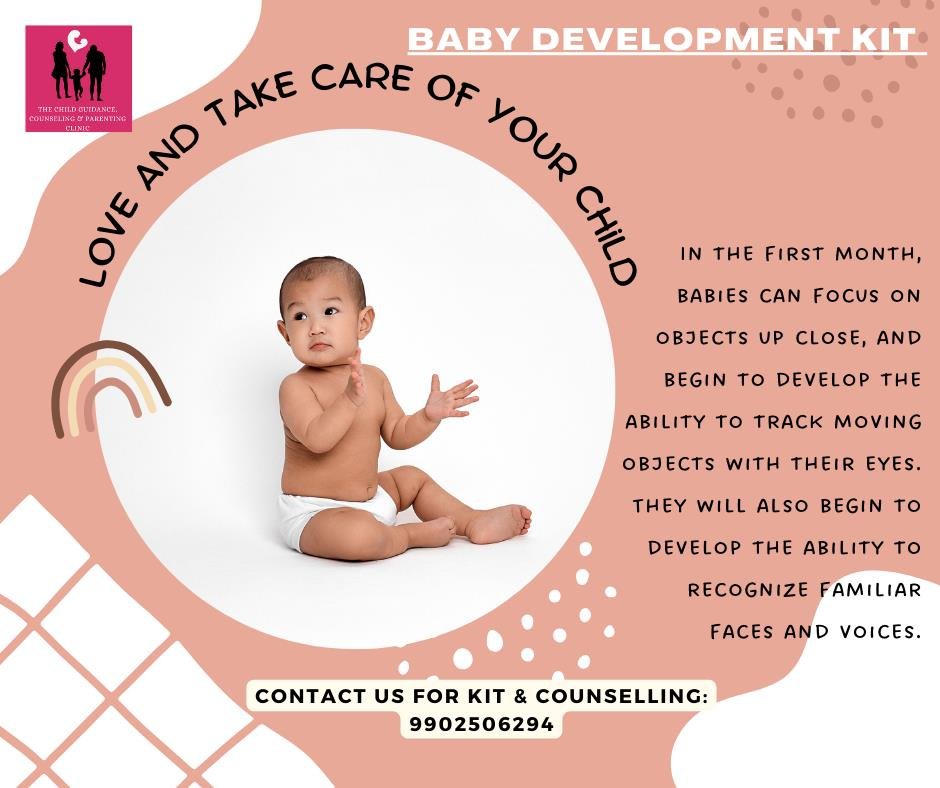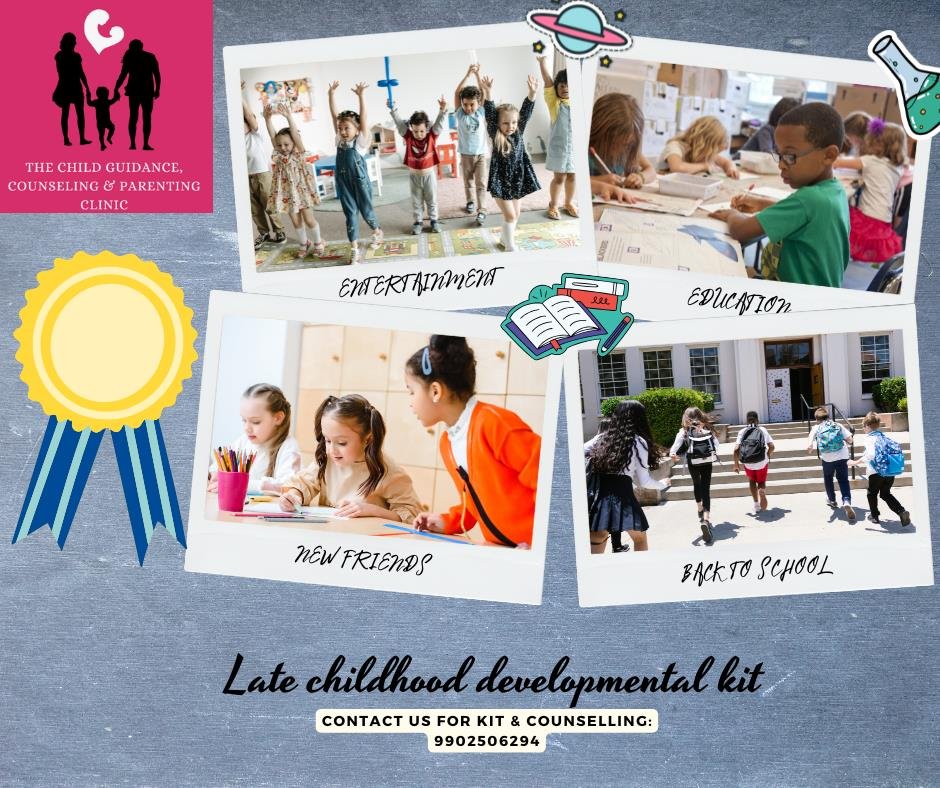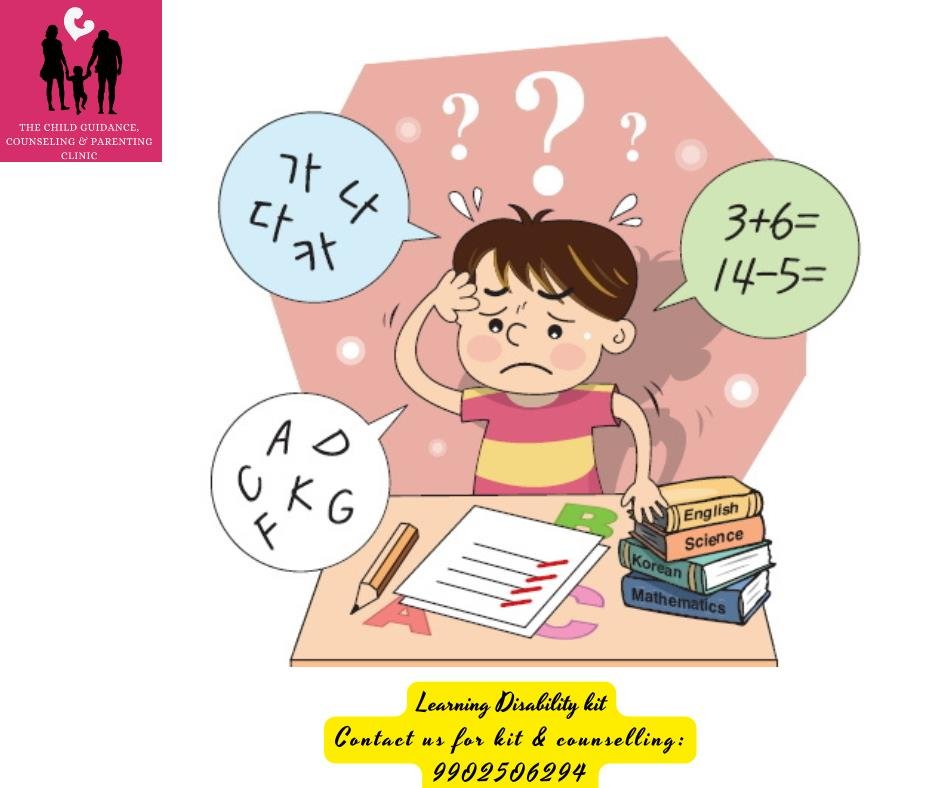Child Development and Psychology Centre in Udaipur
Child development is the process of a child changing over time, from conception to adulthood, and includes physical, intellectual, language, emotional, and social growth. Child psychological
development is the scientific study of how children grow and change from birth through adolescence. It includes the study of how children’s physical, mental, emotional, and social development change at each stage of life.
Understanding your child’s changing growth and development milestones is an important part of parenting. As infants and children progress through a series of growth stages, they may
encounter common physical or emotional challenges.
The child psychology and psychiatry experts at Child Guidance and Parenting clinic (CGC) in Udaipur offer consultations and guidance, so you can better understand what your child is going through and spot any issues along the way.


Factors associated with Child development
Child psychologists consider many factors, including:
- Genetics: How a child’s genetics influence their development.
- Language development: How children develop language skills.
- Personality: How a child’s personality develops.
- Gender roles: How gender roles influence a child’s development.
- Cognitive development: How a child’s thinking, learning, and memory develop.
- Social growth: How a child’s social skills develop.
- Motor & Play skills: How a child’s motor and play based skills develop.
- Self-awareness: How a child develops a sense of self-awareness and self-regulation.
Child psychologists at the Child Guidance and Parenting clinic (CGC) in Udaipur often separate development into specific areas and evaluate the child on them. These areas include: Physical development, Cognitive development, Social/emotional/relational & Skill development.
Stages of Child Development
As you might imagine, developmental or child psychologists often break down development according to various phases of life. Each of these periods of development represents a time when different milestones are typically achieved. People may face particular challenges at each point, and developmental psychologists can often help people who might be struggling with problems to get back on track.
1. Prenatal Development
Developmental psychologists are interested in the prenatal period, seeking to understand how the earliest influences on development can impact later growth during childhood. They may examine how primary reflexes emerge before birth, how fetuses respond to stimuli in the womb, and the sensations and perceptions that fetuses are capable of detecting prior to birth.
Developmental psychologists may also look at potential problems such as Down syndrome, maternal drug use, and inherited diseases that might have an impact on the course of future development.
2. Early Childhood Development
The period from infancy through early childhood is a time of remarkable growth and change. Developmental psychologists examine the physical, cognitive, and socio-emotional growth during this critical development period.
In addition to providing interventions for potential developmental problems at this point, psychologists are also focused on helping kids achieve their full potential. Parents and healthcare experts are often on the lookout to ensure that kids are growing properly, receiving adequate nutrition, and achieving cognitive milestones appropriate for their age.
3. Middle Childhood Development
This period of development is marked by both physical maturation and the increased importance of social influences as children make their way through elementary school.
Kids begin to make their mark on the world as they build their unique sense of self, form friendships, grasp principles of logic, and gain competency through schoolwork and personal interests. Parents may seek the assistance of a developmental psychologist to help kids deal with potential problems that might arise at this age, including academic, social, emotional, and mental health issues.
4. Adolescent Development
The teenage years are often the subject of considerable interest as children experience the psychological turmoil and transition that often accompanies this period of development. Psychologists such as Erik Erikson were especially interested in looking at how navigating this period leads to identity formation.
At this age, kids often test limits and explore new identities as they question who they are and who they want to be. Developmental psychologists can help support teens as they deal with some of the challenging issues unique to the adolescent period, including puberty, emotional turmoil, and social pressure.
5. Early Adult Development
This period of life is often marked by forming and maintaining relationships. Critical milestones during early adulthood may include forming bonds, intimacy, close friendships, and starting a family and career.
Those who can build and sustain such relationships tend to experience connectedness and social support, while those who struggle with such relationships may feel alienated and lonely. People facing such issues might seek the assistance of a developmental psychologist to
build healthier relationships and combat emotional difficulties.
Family, Parenting & Child development
Human development is influenced by, but not entirely determined by, our parents and our genes. Children may have very different personalities, and different strengths and weaknesses, than the generation that preceded them. Caregivers should pay attention to their children’s distinct traits and the pace of their development, and not assume that the approach to parenting that worked for their mothers and fathers will be equally successful in their own families. Parents, and the home environments they create, can also have an important influence on a child’s development; in fact, a child’s home environment can affect the ways that certain genetic traits express themselves, or if they will at all. Caregivers who have a consistent approach, who are warm, and who can givechildren a sense of security, generally have the most positive influence on a child’s development;meeting a child’s physical and dietary needs are also essential as research finds that childhood neglect can disrupt development, perhaps even more than abuse does.
Also, parents are far from the only influencers in a child’s life: Siblings, grandparents, neighbors, peers, celebrities, and policymakers all may contribute to who a young person becomes as well.
Healthy development can be upended by abuse and neglect, which may disrupt cognitive and language development and socialization and particularly hamper a child’s ability to develop trust or self-esteem, or to form healthy relationships with others. The effects of abuse or neglect often linger for years, but they alone do not determine a child’s future. Many children raised in difficult environments develop resilience and grow to thrive as adults.
Facts about child development
Some facts about child development and psychology should be known to parents and families. These include the following:-
- Early years are critical: The first five years of a child’s life are a time of rapid brain development, and the connections made during this time are never repeated.
- Developmental milestones: Children reach milestones in their play, learning, speech, relate, actions, concept acquisition and movement.
- Factors that affect development: Many factors influence a child’s development, including their biological makeup, family, society, economics, environment, health, and culture.
- Nurturing relationships: Warm, responsive relationships are the foundation of healthy child development.
- Growth stages: Children’s growth and development can be divided into four stages: infant, toddler, childhood, and
adolescent. - Developmental delays: If a child’s skills and abilities are delayed compared to other children of the same age, they may have a developmental delay. Early intervention can help children develop new skills.
- Getting help: If you’re concerned about your child’s development, you can make an appointment with a physician or child psychologist/psychiatrist.

Child Developmental disorders
Child psychologists study normal growth patterns and look for any delays or issues. They use this information to offer the right help and strategies for children.
Some examples of child development disorders include:
- Attention-Deficit/Hyperactivity Disorder
- Separation Anxiety
- Intellectual Disability
- Learning Disability
- Enuresis
- Disruptive Mood Dysregulation Disorder
When does one need to see a child psychologist?
While development tends to follow a fairly predictable pattern, there are times when things might go off course. Parents often focus on what are known as developmental milestones, which represent abilities that most children tend to display by a certain point in development. These typically focus on each of four main areas:
- Physical milestones
- Cognitive milestones: including language or concept or academic development
- Emotional milestones
- Social milestones
- Sexual development
Specific conditions wherein child development disorders are present, the parents should consult the child specialist and psychologist/psychiatrist. These conditions include:
- Attention-Deficit/Hyperactivity Disorder/ Concentration and memory issues in children.
- Separation Anxiety and fear related issues in children.
- Intellectual Disability and IQ problems in children.
- Learning Disability/ Academic issues/Poor handwriting and spellings
- Enuresis/ Bedwetting.
- Disruptive Mood Dysregulation Disorder, behaviour problems or conduct disorders in children.
Our Products
Our team of child specialist psychologists and allied health doctors can help you and your child learn and grow well. Our Centre offers Consultations and Counselling for favourable child development. Our doctors have complied kits for easy learning and healthy child development. These include :-








Our posts






Dr Ansha Patel explains child development and parenting.
Book With Us Now
Get an Appointment
Support your child’s development—book your appointment today for expert guidance!
